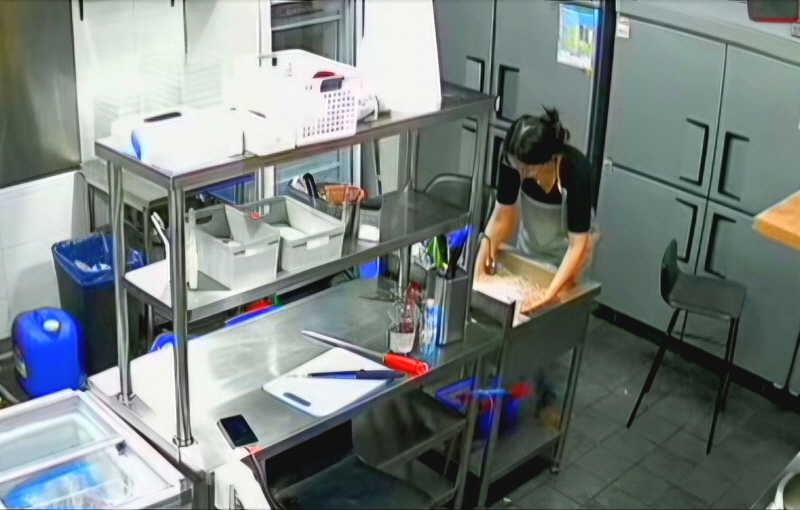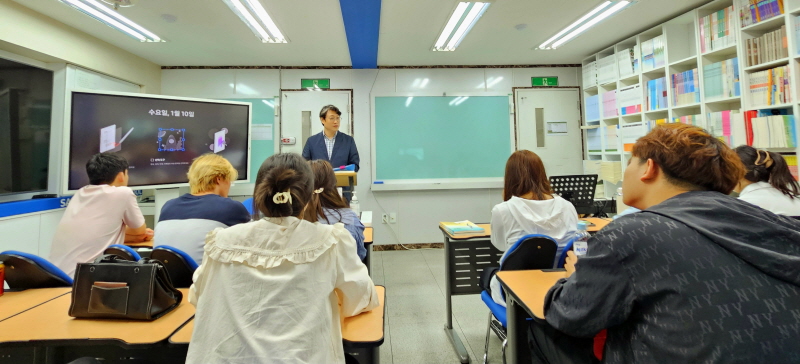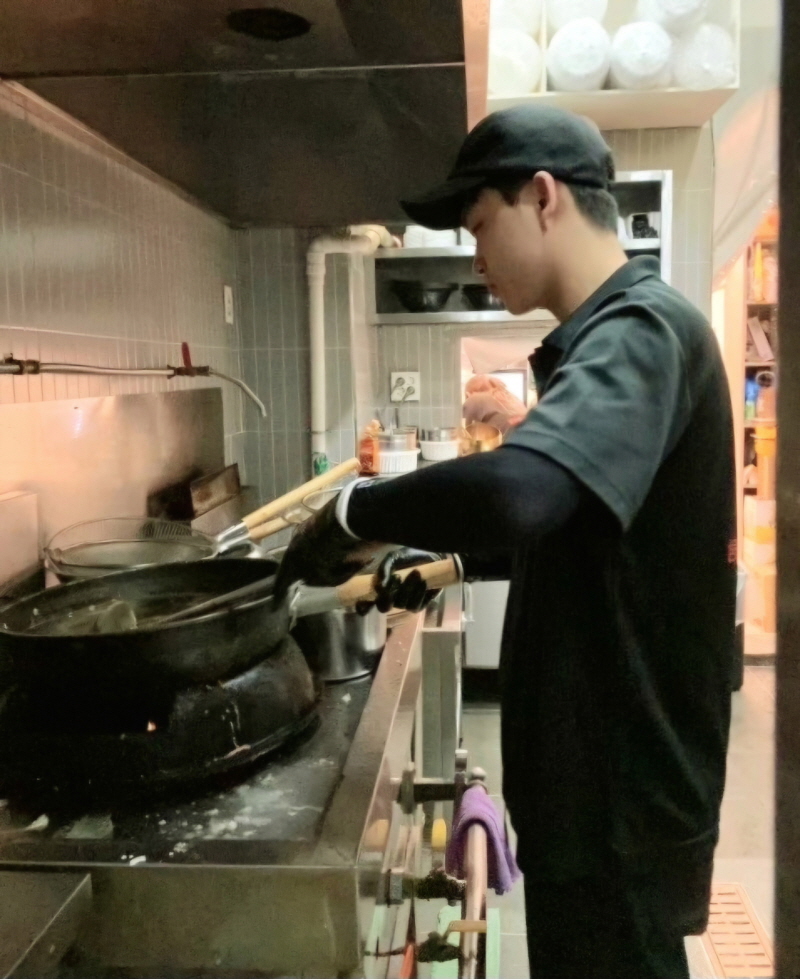[First in a series]
Following is a story of Min-young Kim (alias), a child born to a North Korean defector mother in a third country, shared with the JoongAng Ilbo, a leading Korean newspaper affiliated with the Korea Daily.
“My name is Min-young. I am 21 years old. It has been over a year since I started living as Min-young in South Korea. Until I turned 20, I lived in Liaoning Province, China, as Zhang Wei (alias). My mother risked her life to escape from North Korea, met my father in China, and gave birth to my younger sibling and me.
In China, my mother was an illegal immigrant. She lived in constant fear of being caught by the authorities and sent back to North Korea. After narrowly escaping forced repatriation once, my mother managed to come to South Korea when I was 17.

It took my mother three years to bring us to South Korea. During that time, my father was diagnosed with cancer, and my mother had to work even harder to pay for his treatment. My father passed away after a long battle with cancer, and I, who couldn’t complete school due to caregiving responsibilities, came to South Korea with my younger sibling last year.
Leaving China, where I had lived all my life, was not easy, but I had no hesitation in choosing to go to South Korea. Even in China, I was the daughter of a North Korean defector and a South Korean at heart. Obtaining South Korean citizenship and adopting the name Min-young was an exciting experience.
However, in South Korea, people call me Chinese. Some adults on the subway even threatened me because I spoke Chinese instead of Korean.
The South Korean government does not recognize me as a defector because I was not born in North Korea. My mother, who wanted to live like a human being, escaped from North Korea, and I was born during that journey. However, South Korean law does not consider this important. I still feel unfamiliar with South Korea, which I consider my homeland.”
This is the story Min-young shared with us on July 4 at “Wooridul School” in Gwanak-gu, Seoul. The school is an alternative school integrating elementary, middle, and high school education for North Korean defectors. This school is funded by the Korea Hana Foundation (North Korean Refugees Foundation), which operates under the Ministry of Unification.
Although Min-young is constitutionally a South Korean citizen as the daughter of a North Korean defector, she is not recognized as a defector herself. The current “North Korean Defectors Protection and Settlement Support Act” only recognizes a person who has “resident, lineal ascendants and descendants, spouses, workplaces, etc.” in North Korea as a defector. People like Min-young are merely referred to as “children of North Korean defectors born in third countries.”

Since they are not considered defectors, they cannot receive the minimum support or protection provided by the government. They face even greater challenges in adapting to life in South Korea due to language barriers and identity confusion. Ironically, although they are seen as lucky to be born on the path to freedom, they now pay the price for not being born in the hell that is North Korea.
As the time spent in third countries during the difficult defection process has increased, the number of children like Min-young in other countries now exceeds the number of children born in North Korea. However, Min-young says, “I feel abandoned by both South Korea and China.”
According to the Korean Educational Development Institute, 1,257 out of 1,769 North Korean defectors receiving education in South Korea, or 71%, came from third countries.
As we approach “North Korean Defectors’ Day” on July 14, a newly designated national holiday, the JoongAng Ilbo met with many people like Min-young who are marginalized in their unfamiliar homeland.
Min-young commutes to school from Incheon Cheongna, taking nearly two hours by bus and subway. “I’m so grateful that I can attend an alternative school,” she said. “I can’t be late because I know how hard the teachers work.”
While others struggle with “Monday blues,” Min-young is happiest on Monday mornings. To study Korean and English at school from Monday to Wednesday, she works six-hour shifts washing dishes at a Korean barbecue restaurant from Thursday to Sunday.
For young people like Min-young born in third countries, the “Korean Dream” is not about grand success. “If I could speak Korean well, I could work at a convenience store counter instead of washing dishes in the kitchen,” she said. Their immediate hope is to get a regular job and live a self-sufficient life.
However, these individuals, who are not even recognized as defectors, start from a much more disadvantaged position in South Korean society.
According to the Ministry of Unification, North Korean defectors receive a basic settlement fund of 10 million won ($7,223) for a single-person household and 16 million to 26 million won for households of 2 to 4 people.
However, children born in third countries do not receive this settlement fund. They can only receive an additional childcare allowance of 4.5 million won per child (up to two children), and even this is only available if the child is under 16. Those like Min-young, who come to South Korea as an adult, are not eligible.
Housing and employment support cannot be expected either. Take Min-young’s case, for example. She lives in a 42-square-meter (452-square-foot) rental apartment with her mother and her younger brother, who is two years younger.
The government provides 20 million won in housing support for North Korean defector households of 2-4 people. While this amount could allow them to live in a slightly larger place, Min-young’s family only qualifies for the 1-person support amount of 16 million won because only her mother is legally recognized as a North Korean defector.
In reality, many North Korean defector families with children born in third countries often live in rental apartments meant for one person, with 4-5 people sharing the space. For example, 21-year-old Ji-hoon Choi (alias), whom the publication met at Wooridul School, lives in a 462-square-feet rental apartment with his two younger sisters, who are going through their sensitive teenage years, and their mother.
Since children who come to South Korea at a young age are not eligible for educational support, it is institutionally challenging for them to find opportunities to learn Korean. Twenty-year-old Jang-gun Park (alias) came to Korea in 2016 when he was 12 years old. Although he has lived in Korea for over eight years, he does not recall learning Korean systematically. Even now, he is only able to handle basic communication.
Jang-gun’s mother remarried in South Korea, and he lives in a studio with his Chinese father. Since his father is not South Korean and Jang-gun is not recognized as a defector, they do not receive additional support. “My father is ill and working on a daily wage,” he said. “I also have to work part-time to cover living expenses while studying.”
Despite these hardships, when asked about his original Chinese name, he smiled and said, “I like my current (Korean) name.” He did not reveal his Chinese name until the end.
Male children born in third countries to North Korean defectors must also fulfill their military obligations. Generally, North Korean defectors are exempt from military service due to the difficulty of adjusting to South Korean society. However, this exemption does not apply to children born in third countries.

Twenty-four-year-old Seung-min Lee (alias), who lived in Shandong Province, China, and came to South Korea in June last year, has received a conscription notice to join an army unit in Gwangju next month. He mentioned that he barely managed to get through the medical examination with his mother’s help and is worried about his ability to serve in the military properly, although he feels it is his obligation to do so. “I’m worried that I won’t be able to understand commands since they will be in Korean,” he added.
The Military Manpower Administration stated, “Simply not being able to speak Korean does not qualify as an exemption due to disease or mental disability. If it is determined that military service will be impeded for language reasons, the enlistment date can be adjusted.”
BY YEONGGYO CHUNG, YOOJUNG LEE, YOUNGNAM KIM [chung.yeonggyo@joongang.co.kr]




